




When it comes to doing laundry, many people wonder if using hot water in their washing machines is necessary. While hot water can be effective for certain types of stains and fabrics, it is not always required. In fact, washing clothes in hot water can sometimes cause more harm than good.
According to experts, most laundry can be effectively cleaned with cold or warm water. The key is to use the right detergent and to follow the instructions on the clothing labels. Cold water is best for delicate fabrics, such as silk or wool, as it helps to prevent shrinking or damage to the fibers. Warm water, on the other hand, is ideal for everyday fabrics and most stains.
One of the main benefits of using cold or warm water is energy savings. Hot water requires more energy to heat and can significantly increase your electricity bill. By washing your clothes in cooler water, you can save money and reduce your environmental impact.
However, it is important to note that there are some instances where hot water is recommended. For example, when dealing with grease stains or heavily soiled clothing, hot water can help to break down and remove the dirt more effectively.
In conclusion, hot water is not always necessary for washing machines. Cold or warm water can be just as effective for most laundry, while also saving energy and money. It is always a good idea to check the care labels on your clothing and follow the instructions provided. If you have specific concerns or stains that require extra attention, consult with a laundry expert or the manufacturer of your washing machine for further guidance.
Hot Water and Washing Machines: What the Experts Say
Introduction
Using hot water for washing clothes has long been a common practice. However, there has been some debate about whether hot water is actually necessary for washing machines. Here, we will explore what the experts have to say on this topic.
The Role of Hot Water
Hot water plays a crucial role in removing dirt, oil, and stains from clothes. It can help to dissolve detergents more effectively, improving their cleaning power. Hot water also aids in killing bacteria and removing allergens, which can be beneficial for individuals with sensitive skin or allergies.
The Temperature Settings
Washing machines typically offer different temperature settings, including options for hot, warm, and cold water. The choice of temperature depends on the type of fabric and level of soiling. For heavily soiled clothes or items made from sturdy fabrics, hot water may be necessary to achieve optimal cleaning results. On the other hand, cold water is often sufficient for lightly soiled clothes or delicate fabrics that may shrink or fade in hot water.
Energy Efficiency
One argument against using hot water in washing machines is the energy consumption associated with heating the water. Heating water requires a significant amount of energy, resulting in higher utility bills and increased environmental impact. As a result, many experts recommend using cold or warm water settings whenever possible to conserve energy and reduce costs.
The Importance of Detergents
While hot water can enhance the cleaning process, the choice of detergent is equally important. High-quality detergents have powerful cleaning agents that can effectively remove dirt and stains even in cold or warm water. Therefore, using a good detergent can compensate for the lack of hot water temperature.
Conclusion
Hot water can be beneficial for washing machines in terms of improving cleaning power and reducing bacteria and allergens. However, it is not always necessary and depends on the fabric and level of soiling. With the availability of high-quality detergents, using hot water can be minimized to save energy and reduce costs. Ultimately, finding the right balance between hot and cold water settings can help achieve optimal cleaning results while being mindful of energy efficiency.
Benefits of Using Hot Water
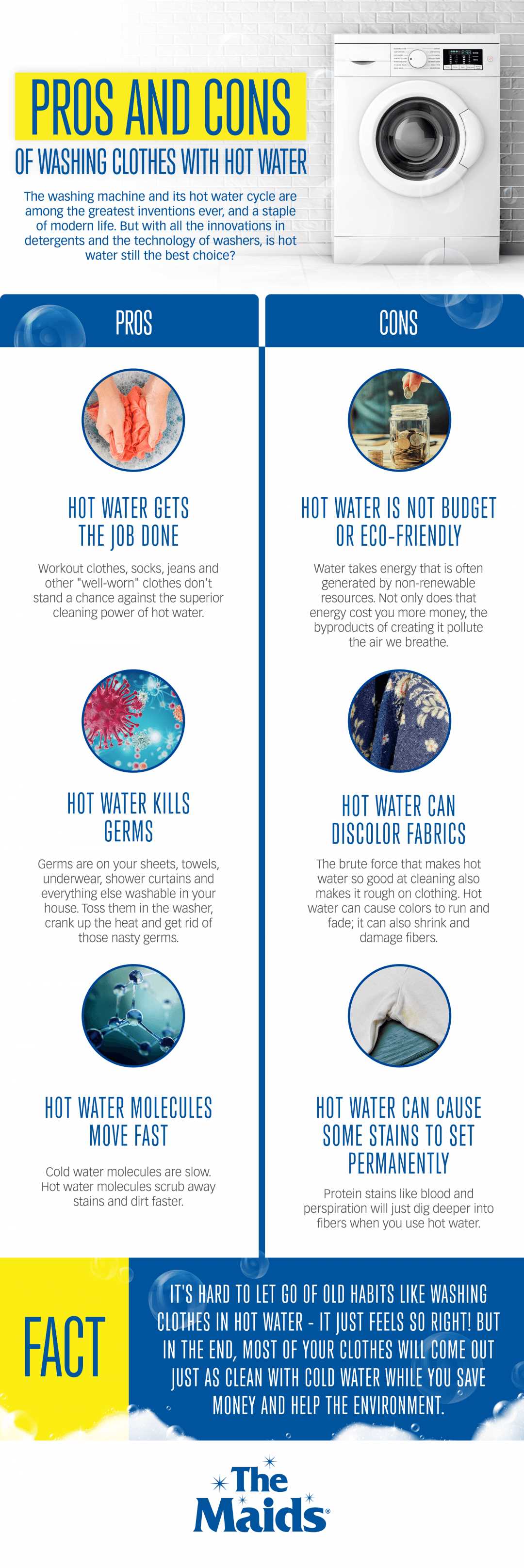
Using hot water in your washing machine can provide several benefits:
- Better stain removal: Hot water can help to dissolve and remove tough stains from clothes more effectively than cold water. It can help to break down grease, oil, and other stubborn stains, resulting in cleaner and fresher-looking clothes.
- Improved sanitation: Hot water has the ability to kill bacteria, germs, and allergens that may be present on your clothes. This can help to ensure that your laundry is thoroughly clean and free from any potential health risks.
- Effective cleaning of heavily soiled items: For heavily soiled items, such as work clothes or children’s clothes, hot water can provide a more thorough and effective clean. It can help to remove dirt, sweat, and other tough stains that may be deeply embedded in the fabric.
- Increased efficiency with certain detergents: Some laundry detergents are formulated to work best with hot water. Using hot water can activate the ingredients in these detergents, allowing them to work more effectively and produce better cleaning results.
- Energy efficiency: While hot water may be beneficial for certain types of laundry, using it for every wash can be energy-intensive. It is recommended to use hot water only when necessary to conserve energy and reduce utility costs.
In conclusion, using hot water in your washing machine can have several benefits including better stain removal, improved sanitation, effective cleaning of heavily soiled items, increased efficiency with certain detergents, and energy efficiency. However, it is important to use hot water only when necessary to balance these benefits with energy conservation.
Energy Efficiency and Cold Water Washing
One of the key benefits of using cold water for washing machines is its energy efficiency. The energy consumed by washing machines is primarily used to heat the water, so by using cold water, you can significantly reduce your energy consumption and, consequently, lower your utility bills.
Advantages of cold water washing:
- Energy savings: Using cold water eliminates the need for heating, which can save a considerable amount of energy. In fact, according to the U.S. Department of Energy, up to 90% of the energy used by washing machines goes towards heating water.
- Extended lifespan: Cold water washing can help extend the lifespan of your clothes by reducing the wear and tear caused by hot water and high heat settings. Cold water is less likely to cause shrinking or color fading, which can occur with hot water washing.
- Environmentally friendly: By reducing energy consumption, cold water washing helps to reduce greenhouse gas emissions and overall environmental impact. It is a simple yet effective way to contribute to a more sustainable lifestyle.
Tips for efficient cold water washing:
- Choose the right detergent: Look for detergents specifically formulated for cold water washing. These detergents are designed to dissolve and perform well in lower temperatures.
- Pre-treat stains: For tough stains, pre-treat them with a stain remover or a bit of the detergent before washing. This will help to ensure effective stain removal even in cold water.
- Use the appropriate wash cycle: Different fabrics and clothing items require different wash cycles. Make sure to use the appropriate cycle for the best results. Check the clothing labels for instructions.
- Load the machine correctly: Overloading the machine can affect the quality of the wash. Follow the recommended load capacity and distribute the clothes evenly in the drum to ensure thorough cleaning.
- Consider using a cold water booster: If you live in an area with hard water, using a cold water booster can help improve the effectiveness of cleaning agents and prevent the buildup of mineral deposits on your clothes or in the machine.
In conclusion, using cold water for washing machines can offer numerous benefits in terms of energy efficiency, clothing lifespan, and environmental impact. By making a simple switch, you can save energy, money, and contribute to a greener lifestyle.
Effectiveness of Cold Water Washing
Many people believe that hot water is necessary for washing machines to effectively clean clothes. However, cold water washing can also be very effective in removing dirt and stains from fabrics. Here are some reasons why cold water washing can be just as effective as hot water washing:
1. Energy Efficiency
- Cold water washing is more energy efficient than using hot water. Heating water consumes a significant amount of energy, so by washing clothes in cold water, you can reduce your energy consumption and lower your electricity bills.
- In fact, it is estimated that up to 90% of the energy used by washing machines goes into heating water. By simply switching to cold water washing, you can make a significant impact on your carbon footprint and help protect the environment.
2. Preserves Fabric
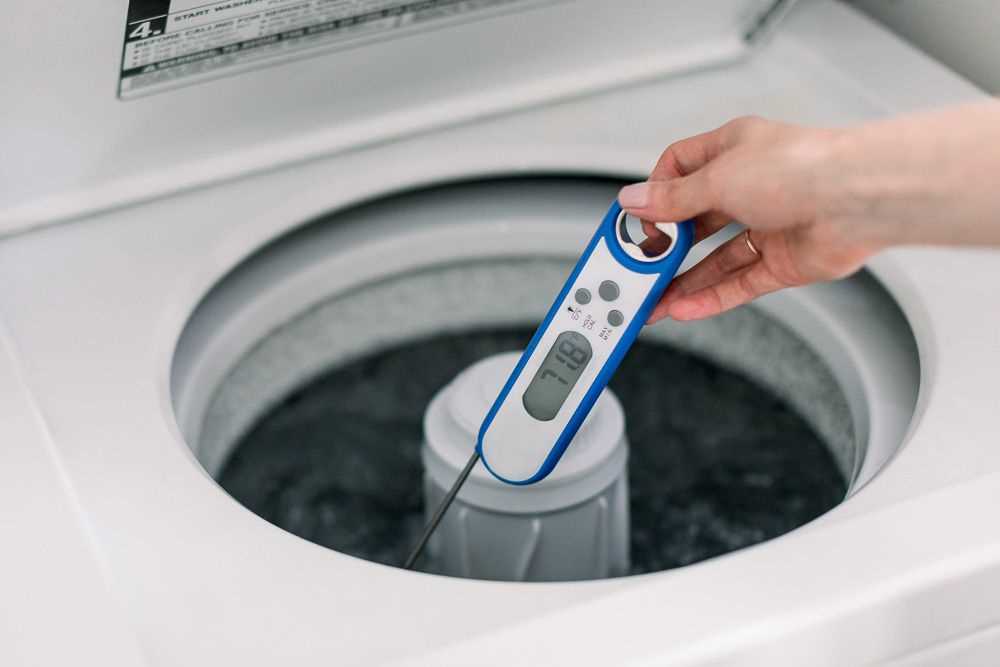
- Hot water can be harsh on certain fabrics and may cause them to shrink, fade, or lose their shape. Cold water, on the other hand, is gentler on fabrics and helps preserve their color and texture.
- This is especially important for delicate clothing items or garments made from natural fibers, such as silk or wool. By washing these items in cold water, you can extend their lifespan and keep them looking as good as new for longer.
3. Stain Removal
- Cold water washing can effectively remove many types of stains. Modern detergents are formulated to work well in cold water and can break down and lift away dirt, oils, and stains without the need for hot water.
- For particularly stubborn stains, you can pre-treat them with a stain remover or soak the garment in a solution of water and detergent before washing in cold water. This approach can often achieve excellent stain removal results.
4. Water Savings
- Washing clothes in cold water can also help conserve water. Hot water washing requires a significant amount of water to heat up, whereas cold water washing can be done with the water straight from the tap.
- By reducing your hot water usage, you can contribute to water conservation efforts and help preserve this valuable resource.
Overall, cold water washing can be just as effective as hot water washing in cleaning clothes. By making the switch to cold water, you can save energy, preserve fabrics, effectively remove stains, and conserve water. Next time you do your laundry, give cold water washing a try and reap the benefits!
Considerations for Temperature Selection
When it comes to selecting the temperature for your washing machine, there are a few important considerations to keep in mind. The temperature you choose can have a significant impact on the cleanliness and longevity of your clothes, as well as the energy consumption of your machine.
1. Fabric Care
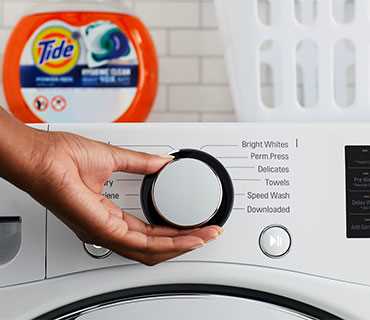
One of the main factors to consider when selecting the temperature is the care requirements of your fabrics. Certain fabrics, such as delicate or synthetic materials, may require cold or warm water to avoid shrinking or damage. On the other hand, heavily soiled clothes or items that need disinfection, like bedding or towels, typically benefit from a hot water wash to ensure thorough cleaning.
2. Stain Removal
The temperature of the water can also affect the effectiveness of stain removal. Hot water is generally more effective at removing oily or greasy stains, while cold water is better for preserving the color and preventing stains from setting in. For best results, it’s recommended to pre-treat stains before washing and consult the garment’s care instructions.
3. Energy Efficiency
Another important consideration is energy efficiency. Heating water for laundry uses a significant amount of energy, so opting for cooler water temperatures can help reduce your energy consumption and lower your utility bills. Many modern washing machines have energy-saving modes or temperature settings that automatically adjust based on the recommended settings for the chosen fabric.
4. Setting Options
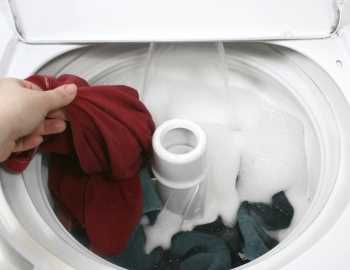
Most washing machines offer different temperature settings, such as cold, warm, and hot, as well as specific fabric settings like delicate or heavy-duty. Take advantage of these settings to tailor the temperature to the specific needs of your laundry load. Experimenting with different settings can help you find the optimal temperature for different types of clothes.
5. Environmental Impact
Lastly, it’s important to consider the environmental impact of your washing machine’s temperature selection. Hot water washing consumes more energy and can contribute to higher carbon emissions. By opting for cooler water temperatures, you can help reduce your carbon footprint and contribute to a more sustainable lifestyle.
In conclusion, when selecting the temperature for your washing machine, it’s essential to consider fabric care requirements, stain removal effectiveness, energy efficiency, setting options, and the environmental impact. Finding the right balance between these factors will ensure clean, long-lasting clothes while minimizing energy consumption and environmental impact.
Expert Advice on Optimizing Washing Machine Performance
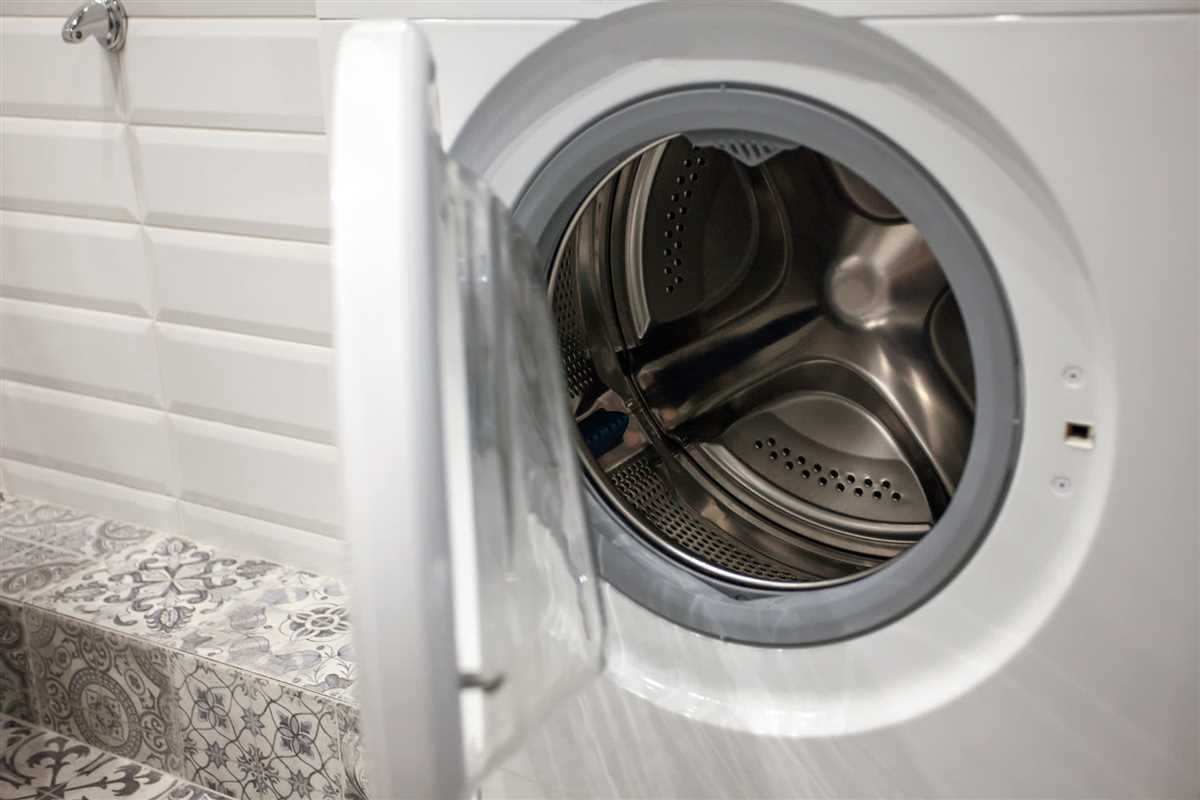
1. Follow the Manufacturer’s Instructions
One of the most important tips for optimizing your washing machine’s performance is to read and follow the manufacturer’s instructions carefully. Each washing machine is different, and the manufacturer’s instructions will provide specific guidance on how to use the machine effectively.
2. Sort Your Laundry
Sorting your laundry before washing can help optimize your washing machine’s performance. Separate your whites, darks, and colors to prevent color bleeding and ensure that each load is washed at the appropriate temperature and cycle.
3. Use the Right Detergent
Choosing the right detergent is crucial for optimizing your washing machine’s performance. Look for a detergent that is designed for your specific type of washing machine and the type of fabric you are washing. Using the wrong detergent can lead to poor cleaning results and may even damage your clothes or the machine.
4. Don’t Overload the Machine
Overloading your washing machine can lead to poor cleaning results, increased wear and tear on the machine, and potential damage to your clothes. Be sure to follow the manufacturer’s instructions regarding the maximum load capacity of your machine and avoid exceeding it.
5. Choose the Right Water Temperature
While hot water is not necessary for all types of laundry, selecting the right water temperature can help optimize your washing machine’s performance. Some stains and fabrics require hot water for effective cleaning, while others can be cleaned with cold or warm water. Refer to the garment labels and the detergent instructions for guidance on the appropriate water temperature.
6. Regularly Clean and Maintain Your Machine
Regular cleaning and maintenance are essential for keeping your washing machine running optimally. Follow the manufacturer’s instructions for cleaning the machine, including the detergent dispenser, lint trap, and drum. Additionally, perform routine maintenance tasks like checking hoses, cleaning filters, and inspecting for any signs of damage.
7. Consider Energy Efficiency

Optimizing your washing machine’s performance also includes considering its energy efficiency. Using energy-saving modes, such as shorter wash cycles or lower water temperatures, can help reduce your electricity and water consumption. Additionally, avoid running partial loads and try to wash full loads whenever possible.
8. Regularly Inspect and Replace Parts
Inspecting your washing machine for any signs of wear or damage is important for maintaining its optimal performance. Pay attention to issues like leaking water, strange noises, or any other abnormalities. If you notice any problems, contact a professional technician to inspect and potentially replace any faulty parts.
FAQ
Do all washing machines require hot water?
No, not all washing machines require hot water. There are washing machines that can be connected to a cold water supply only.
What are the benefits of using hot water in a washing machine?
Hot water can help to kill bacteria and germs, remove tough stains, and provide a deeper clean for certain types of fabrics.
Is hot water more effective in removing stains?
Yes, hot water tends to be more effective in removing stains compared to cold water. The heat helps to break down stains and loosen dirt from fabrics.
Can I save energy by using cold water instead of hot water in my washing machine?
Yes, using cold water instead of hot water can help you save energy as heating water accounts for a significant portion of the energy used by washing machines.
What fabrics require hot water for washing?
Fabrics that are heavily soiled or stained, such as bedding or towels, may benefit from being washed in hot water. However, it is important to check the care labels of your clothes to see if there are specific temperature recommendations.
Is it necessary to use hot water in a washing machine?
Hot water is not necessary for washing machines. Most washing machines are designed to work with both cold and hot water. Using hot water can help remove stains and kill bacteria, but it is not needed for every load of laundry. Using cold water in the washing machine can help save energy and reduce utility bills.














